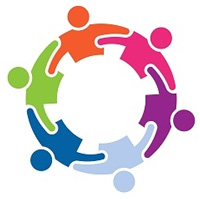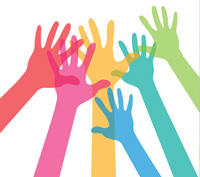Key Information
Level: LEVEL 3Examination Board: OCR
Subject Leader: Mrs Sykes
Entry Requirements
Grade 5 in English and a grade 4 in science.Why Choose this course?
OCR Cambridge AAQ Level 3 Health and Social CareQualification Code: H125 (Extended Certificate - equivalent to one A Level)
Health and Social Care is an ideal subject for students who are interested in working with people, understanding human development, and supporting individuals across a range of health and care settings. The OCR Cambridge AAQ Level 3 Health and Social Care qualification offers a balanced mix of academic study and practical application, making it perfect for learners who want to combine theory with real-world skills.
This course covers key areas such as human anatomy and physiology, person-centred care, mental health, and the principles that underpin effective practice in the health and social care sector. Across two years, students will complete six units, including two externally assessed exams and four internally assessed coursework (non-examined assessment) units. This structure provides opportunities for learners to demonstrate both their academic understanding and their ability to apply knowledge to realistic scenarios.
Key topics include equality and diversity, legislation, effective communication, mental health conditions, and the functioning of body systems. Students will also explore how to provide ethical, respectful, and person-centred care tailored to individual needs. A strong emphasis is placed on developing transferable skills such as communication, teamwork, decision-making, and critical thinking - all of which are essential in both further study and employment within the sector.
The course provides a solid foundation for progression to higher education courses in nursing, midwifery, occupational therapy, social work, psychology, and related disciplines. It also supports entry into vocational careers in healthcare and social care environments, including roles such as care support worker, mental health worker, or health administrator.
Whether you're looking to pursue a professional path in healthcare or simply want to better understand the challenges and responsibilities of caring for others, this course provides the knowledge and skills to make a real difference.
Prospects
This qualification is an ideal first step to careers within health and social care. The course supports access to a range of related apprenticeships and higher education courses and combines well with other sixth form subjects. For example:
A combination of Health and Social Care along with A Levels in psychology and biology can lead to a BSc (Hons) in nursing.
A combination of Health and Social Care along with A Levels in English and history can lead to a BA (Hons) in primary education.
A qualification in health and social care can also lead to degree courses in social work, youth work, sports studies, and police studies.
Course Content
Year 12
Unit 1:Human Lifespan Development
(External Exam)
Unit 14:Physiological Disorders and their Care. (Coursework)
Year 13
Unit 2: Working in Health and Social Care (External Exam)
Unit 5:Meeting Individual Care and Support Needs. (Coursework)
Each unit has specific learning aims that are addressed throughout the course some of which are synoptic.
Course Opportunities/ Activities
Throughout the 2 year course, Health and Social Care students will have the opportunity to connect with professionals in these fields. Workshops and talks from nurses, social workers, midwives, occupational therapists, youth workers, and care home managers will be offered regularly throughout the course. Students will also learn about how they can volunteer and complete work experience at local hospitals, residential care facilities and other health and social care providers. These experiences are vital for students pursuing a career in health or social care field. Future opportunities include collaboration with the Broughton Hall Science department in developing an on-site replica hospital ward. On this ward, students interested in health care can experience what it is like to work in a hospital setting whilst developing their health care skills.
Support and Challenge
All health and social care students are given topic booklets, past papers and access to an online textbook. Additional revision and examination activities are provided throughout the course as well as revision and extra coursework sessions and one-to-one support. Every half term, all students are given a calendar of activities, revision and extensions opportunities for each week. This allows them to organise their time, balance their coursework with their revision, and prioritise their focus.
The extension opportunities give students the chance to investigate the role of health and social care further, including the impact the recent pandemic has had on services and the people who provide them. Relevant podcasts, news articles, films, and television programmes are recommended and referred to in every unit. Students have been supported with successful applications to apprenticeships and university courses in nursing, midwifery, physical and occupational therapy, speech therapy, primary and early years education, sports sciences, and social work.
Student Comment
Health and Social Care really helps me understand the roles of people who work in the health field. I want to become a nurse and this subject is giving me the skills and understanding of what it will be like to work with patients and how I can best help the people in my care.
I really like Health and Social Care because it is really relevant to me. It has given me the knowledge of how we all grow and develop throughout our life and the different events that can affect our health and well being. I have also developed research skills, time management and confidence in taking exams which has helped me in my other subjects.

 The study of Health and Social Care at both Key Stage 4 and 5 allows pupils to learn about a sector that is vital to the health and well-being of our society. Involving both practical and theoretical elements, this course give pupils the opportunity to understand the role doctors, nurses, Allied Health Professionals, social workers, youth workers, and other care workers play in supporting the health and wellbeing of people across the UK.
The study of Health and Social Care at both Key Stage 4 and 5 allows pupils to learn about a sector that is vital to the health and well-being of our society. Involving both practical and theoretical elements, this course give pupils the opportunity to understand the role doctors, nurses, Allied Health Professionals, social workers, youth workers, and other care workers play in supporting the health and wellbeing of people across the UK.
 The Eduqas Level 1/2 Vocational Award in Health and Social Care introduces students to the knowledge, skills, and values needed for future study and employment within the health, care, and early years sectors. This practical, applied qualification helps learners develop an understanding of how individuals grow and develop across the life stages, the different factors that can influence this development, and the roles of professionals who provide care and support.
The Eduqas Level 1/2 Vocational Award in Health and Social Care introduces students to the knowledge, skills, and values needed for future study and employment within the health, care, and early years sectors. This practical, applied qualification helps learners develop an understanding of how individuals grow and develop across the life stages, the different factors that can influence this development, and the roles of professionals who provide care and support.